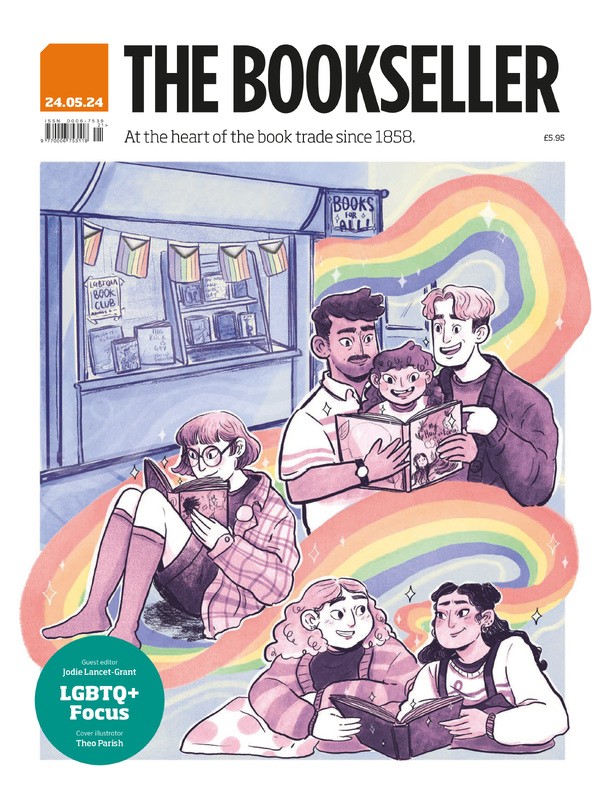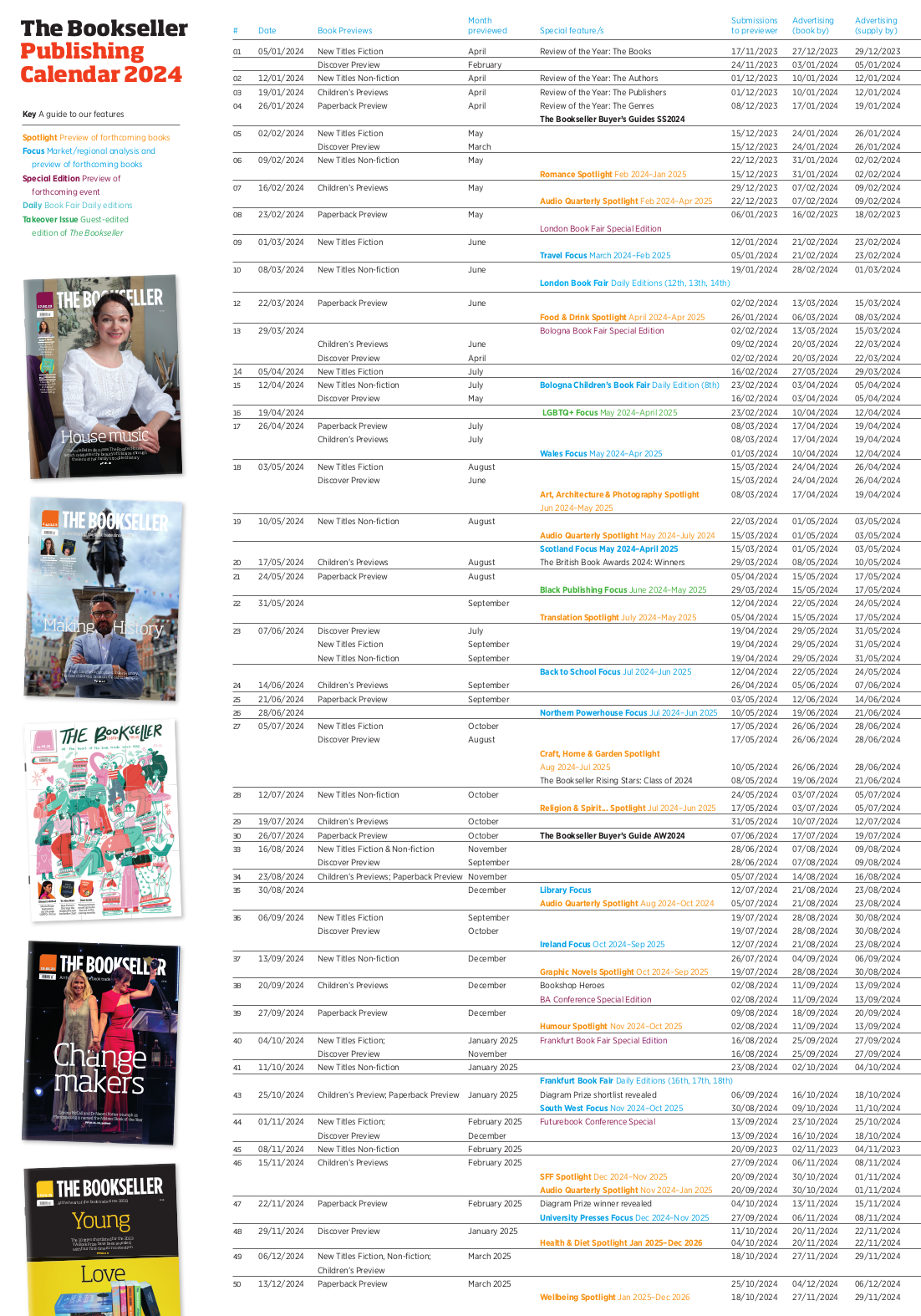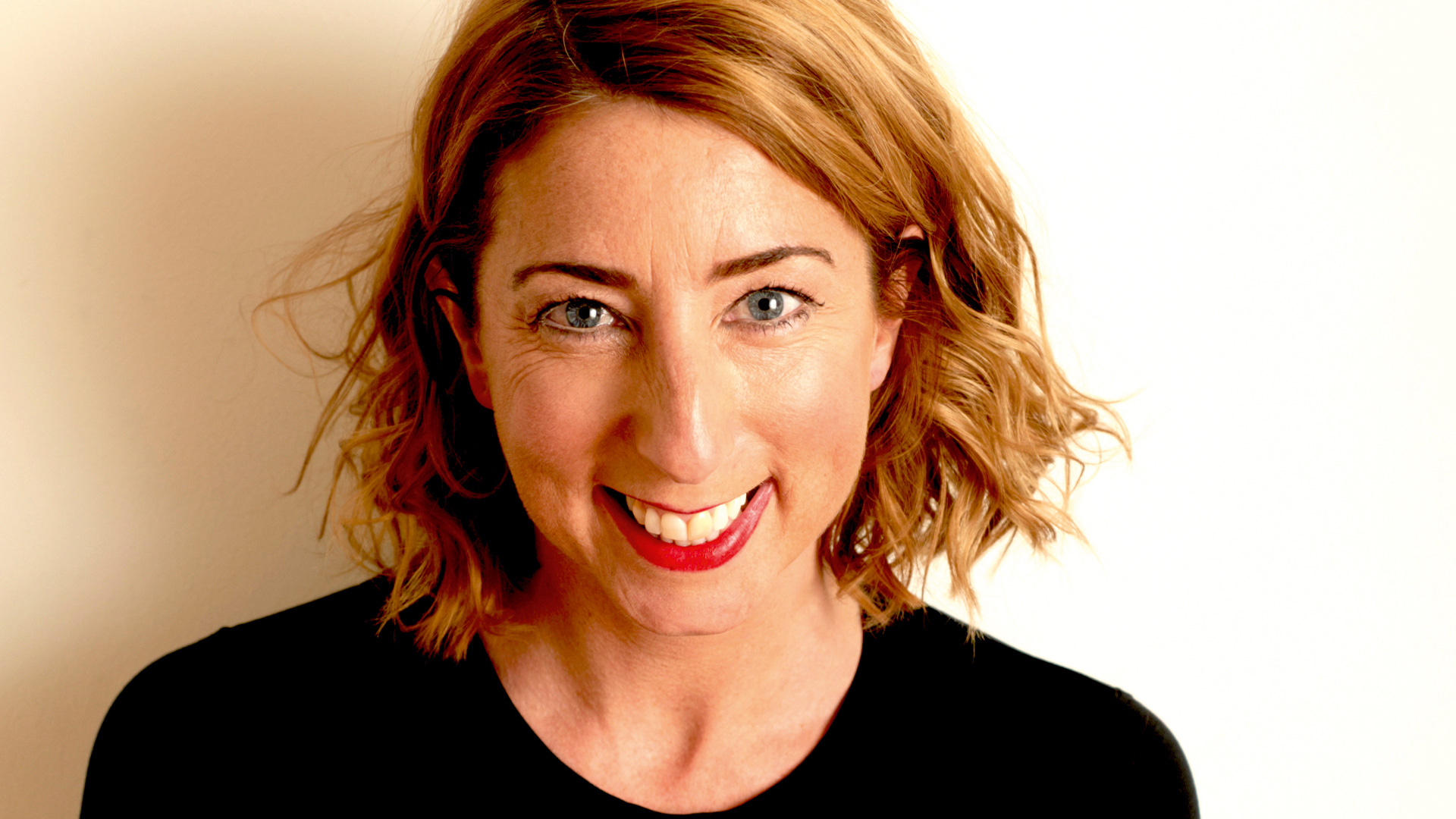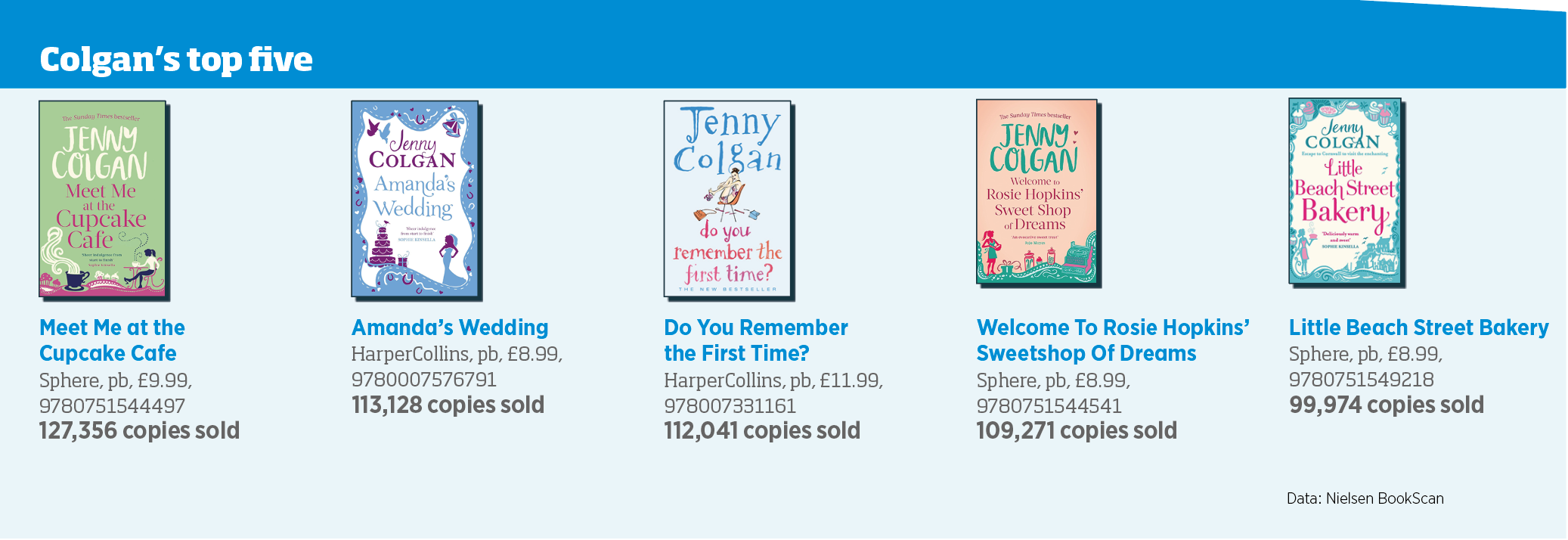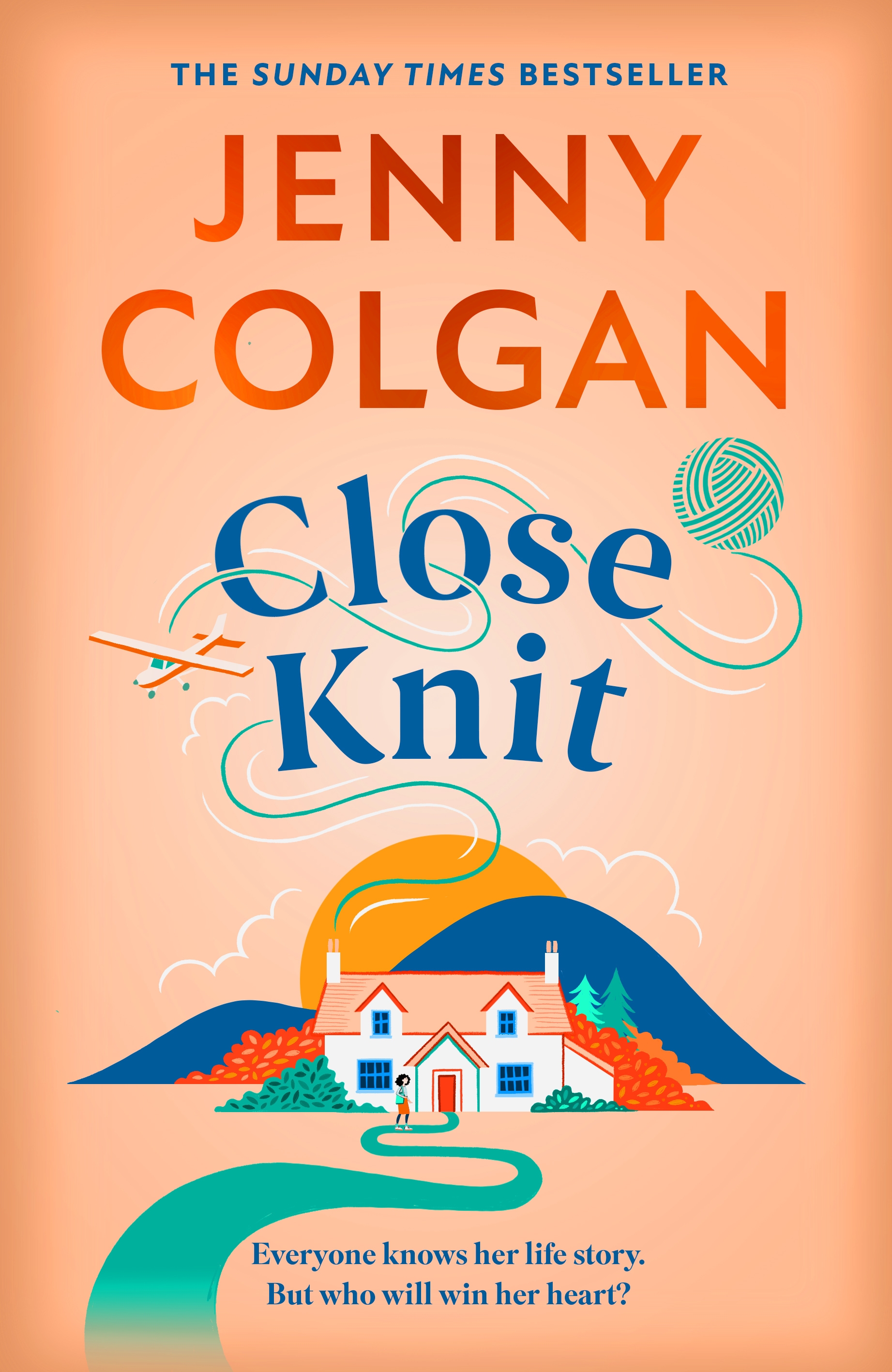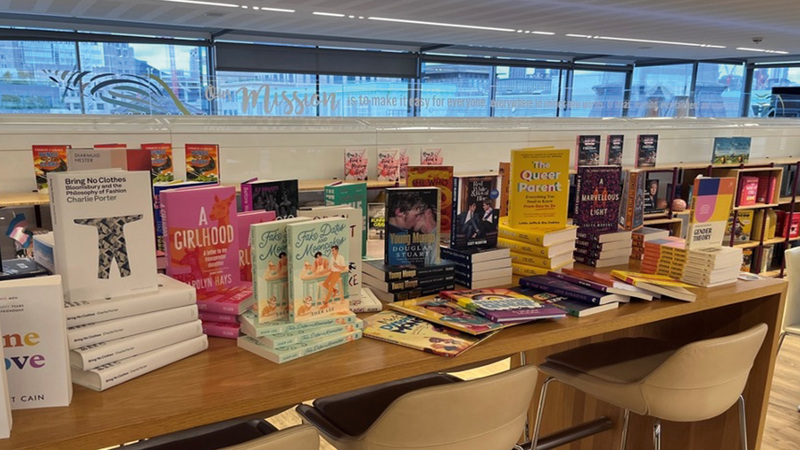Author profile — Jenny Colgan
Jenny Colgan’s move back to Scotland made her see her native land with new eyes – and has supercharged a new phase of her career.
Eight years ago, after having lived two decades in London and abroad (mostly France) Jenny Colgan and her family moved back to her native Scotland. She now splits her time between Edinburgh and, in what seems like a checkmate move for a bestselling commercial women’s fiction novelist, a seaside castle in Fife with dramatic views of the Firth of Forth.
Even if fans of the romance author had not realised she was back in her home country, they may have twigged it as she has set many of her recent books there, either in a very specific place (the Victoria Street, Edinburgh, locale of her Christmas Bookshop series) or fictionalised versions, like the small island in her now five-strong Mure series which combines aspects of Lewis, Orkney and Shetland.
Colgan says the move back to Scotland made her “see it with new eyes” She adds: “A lot of what annoyed me about Scotland when I was younger – everyone being so chatty all the time, small communities where you know everyone’s business – became a real joy to me when I moved back. And when I was younger I didn’t really notice how beautiful Scotland was, or how privileged I was to live there.
“I firmly believe writers can set books wherever they bloody well like – I’ve written books set in Cornwall, Paris and a planet that’s entirely underwater. But for me, I write better and more authentically writing the year and seasons around me. Some Scottish-set novels by people who don’t live here are just such obvious billy-bollocks from top to bottom.”
Colgan generally publishes two books a year. Her spring titles often have a holiday-reading angle like the recently released Summer Skies which has pilot Morag returning to her home in the Highlands when her father falls ill. She takes over his business flying locals around to far-flung spots in a rickety old plane, but then a storm forces her to crash-land on a remote island. She thinks she is alone, then discovers gruff ornithologist Gregor is taking care of the island for the season and the two are stuck together until help arrives.
The autumn releases tend to have a winter/festive hook, such as last October’s Midnight at the Christmas Bookshop. But there is a slight change with the upcoming Close Knit with its earlier August publication date and a story centred on a knitting circle. Colgan says it is “more generally about women and what they talk about when men aren’t there, and how they support each other through the ups and downs of life”.
It may not be uncoincidental that the shift with Close Knit is the first in Colgan’s new five-book deal with Hodder, after more than a decade at Sphere. No shade on the Little, Brown imprint, Colgan says: “I’m still in Hachette, and the team at Sphere are completely fantastic. I’m just back with [Hodder executive publisher] Jo Dickinson who took me to Little, Brown in the first place.”
There is much afoot in the Jenny Colgan business. Happy Prince – the production company behind the upcoming Disney+ adaptation of Jilly Cooper’s Rivals – is developing her 2014 title, Little Beach Street Bakery, for the screen, though Colgan can reveal no further details.
Some Scottish-set novels by people who don’t live here are just such obvious billy-bollocks from top to bottom
International sales are booming of late with translations now in 20 territories. Colgan puts that success down to a combination of hard work from her agent Jo Unwin and C&W, which handles the translation rights. Plus her international publishers “who absolutely get what we are trying to do”; and getting boots on the ground: “[Doing events abroad] particularly outside the big cities, has an out-of-proportion positive effect. I would say it’s also because I’ve tightened my focus more to writing about Scotland, but actually one of things we’ve found is there is nothing in common about [which territory] likes what: in Germany they like the baking novels, in Scandinavia the Mure books and Italy likes the bookshops. France I don’t understand at all, but I’m completely delighted about it all. It’s my dream to get a French film deal, and appear in the background gesticulating madly and wearing an interesting hat.”
Though an east coaster now, Colgan grew up on the other side of the Central Belt “as a library addict” in the seaside Ayrshire town of Prestwick before moving across to Edinburgh for university. In the holidays she worked at the Edinburgh Fringe and loved the comedy scene, so went to London to try to make it in stand-up. She says: “I failed for the embarrassing reason that I sucked. I then failed to make it as a cartoonist because, tragically, I also sucked. Thank heavens Helen Fielding came along and created a new path for young funny women in London. I owe her a lot.”
Colgan published her first novel, Amanda’s Wedding, in 2000 at the height of Fielding’s Bridget Jones mania. It was a hit and she has been going strong ever since, with her books – including several Doctor Who novelisations (she is a huge Whovian) written as J T and Jenny T Colgan – shifting 2.4 million units for £11.3m through Nielsen BookScan.
Dealing with dismissal
So she has seen the changes from when the bulk of her genre was dismissed as “chick lit” to the BookTok boom of today. She says: “The most interesting thing is how many people I started out with are still in the charts– Jojo Moyes, Marian Keyes and Sophie Kinsella. Lisa Jewell writes thrillers now, but she’s a huge name. For years we were kind of looking around nervously saying, ‘Where are all the young new writers?’ I think for a while they maybe went into screenwriting, but now they’re here in the shape of Emily Henry and Beth O’Leary and it’s wonderful.
“And it’s a joy to look around events and bookshops and see just how many young readers there are. Romantasy took me by surprise, but that’s amazing too. I’m glad we’ve stopped saying chick lit, although every year the Guardian used to ask me to write a column on why we shouldn’t use the term and I’d cut and paste it from the one I wrote the year before and send them an invoice. So I slightly miss that.”
That said there is still a long way to go to true respect, she thinks. “There’s intersectional prejudice: these books are read by women, by older women, and by working class women. Broadsheets get the absolute vapours. But people who have very strong opinions about what genres they do and don’t read aren’t real readers in my opinion… I don’t even believe in genre, just quality.”
She adds: “I think of myself as a comic writer. Here I qualify as romance, but in Scandinavia it’s ‘Feelgood’, in France it’s livres doudou – the book you want to cuddle like a teddy bear. That’s my favourite description. I love an uplifting framework, especially these days. I think we need it more than ever. If you’re in the mood for something gritty, all you have to do is read the news.”

